Switzerland: Two decades of terrorism trials.
by Ahmed Ajil, University of Lausanne (Switzerland) – Researcher, Criminologist
An overview of the cases tried by the Swiss Federal Criminal Court since 9/11
Although Switzerland has not experienced a large-scale attack of the kind experienced in other European countries in the last decade, the phenomenon of politico-ideological violence in the jihadist spectrum is nevertheless present. In December 2021, the Federal Intelligence Service counted 41 so-called “persons at risk” considered to be posing “a priority threat to Switzerland’s internal and external security”. In the context of its “jihad monitoring”, it also identified 714 people who were active online (since 2012), showing sympathy for jihadist terrorist organisations by disseminating propaganda or by talking to people who defend the ideology of these groups. Since 9/11, 91 individuals have left Switzerland to join a terrorist organisation in Afghanistan, Pakistan, Yemen, Somalia, Syria or Iraq. Some people have returned, while others, now held by Kurdish forces in Syria, are seeking to be actively repatriated, something the Federal Council refuses to do.
While there are different ways to confront the terrorist phenomenon, the use of criminal law constitutes the most obvious one. In its 2020 annual report, the Federal Prosecutor’s Office (FPO) reported 35 pending criminal investigations for terrorism in 2016, 34 in 2017, 30 in 2018, 31 in 2019 and 26 in 2020. In this short contribution, I would like to present a few findings from a research project on the repression of terrorism by the Federal Criminal Court (FCC), conducted together with my colleague Kastriot Lubishtani, of which some results have recently been published in Jusletter (31 May 2021).
The FCC, operative since 2004, is the judicial authority that is charged with the sentencing of terrorism-related offences. The few criminal proceedings opened by the cantonal prosecution authorities are taken over by the FPO and then judged by the TPF, except for those relating to minors. Analysing the sentencing pattern of the FCC in this domain enables us to gain quite a comprehensive view of the most severe cases which “make” it through all stages of the so-called “crime funnel” (entonnoir pénal). At this point, it is important to note that the Federal Prosecutor’s Office (FPO) can also single-handedly sentence individuals as long as the punishment does not exceed six months of liberty-deprivation. The FPO frequently resorts to this option, but given that these verdicts are, in principle, not accessible to the public, they are not accounted for here.
From a legal perspective, there are mainly two provisions that are applied to terrorism-related offences. One of them is article 260ter of the Swiss Criminal Code which criminalises the support of and participation in criminal organisations (a term that includes terrorist groups). The other one is the Federal Law prohibiting the organisations Islamic State and Al-Qaida and related groups (in short: IS/AQ-Law), which entered into force on 1 January 2015.
We collected all sentences related to these two provisions and then selected only those related to terrorism. The only form of terrorism handled by the FCC since its inception in 2004 is jihadism-inspired terrorism. Since the publication of our article in May 2021, two hearings took place and led to convicting three (3) individuals in total, which I am including in this contribution.
The numbers
Since 2004 and until November 2021, the TPF has tried a total of 17 criminal proceedings related to jihadist terrorism cases. Most of these proceedings took place after the outbreak of the Syrian civil war and the subsequent territorial expansion of the group IS in June 2014. In fact, three (3) proceedings were conducted between 2004 and 2014 with eleven (11) persons formally indicted during this period, while there were fourteen (14) proceedings and twenty-one (21) persons tried by the TPF between 2014 and 2020. The language of proceedings was German in twelve (12) of the proceedings conducted in Bellinzona, while French was used three (3) times and Italian twice (2).

These proceedings are relatively complex, which is reflected in the length of the pre-trial proceedings, as well as in their costs. On average, 882 days, or almost 2.5 years, elapsed between the initiation of criminal proceedings against an accused person and his or her indictment. The direct costs related to the investigation, the defence and the court hearing reached up to 800’000 Swiss Francs for a single case.
Across the 17 procedures, a total of 32 individuals appeared before the Federal Criminal Court. This means that in several proceedings – more precisely, seven (7) – several persons were tried. Specifically, four (4) proceedings involved two (2) persons, while the remaining three (3) proceedings involved three (3) persons, four (4) persons and the last one involved seven (7) persons. In each of the remaining ten (10) proceedings, only one (1) person was indicted.
The overwhelming majority of the terrorism cases brought before the FCC led to convictions. In total, 30 individuals were convicted by the FCC and two (2) persons were acquitted of all charges. As of 20 November 2021, there are twenty-one (21) final and enforceable convictions. Of these, six (6) persons were eventually not convicted in relation to terrorism-related offences. Hence, to date, there have been 24 convictions for terrorism-related offences, of which fifteen (15) are final and nine (9) are pending.
Who are the Swiss terrorists?
Thirty (30) accused were men, while one (1) woman was charged as a co-defendant and one (1) as main defendant. Twelve (12) of the accused were Swiss nationals, seven (7) of whom had dual citizenship. Of these, one (1) Turkish-Swiss dual national was subjected to a citizenship stripping, confirmed by the Federal Administrative Court in 2021. Nine (9) defendants had a residence permit. Ten (10) defendants were asylum seekers. Seven (7) of them had their asylum applications pending and three (3) had been provisionally admitted. One (1) defendant had never resided in Switzerland but was staying there at the time of her arrest.
The overwhelming majority, i.e., twenty-six (26) persons had no previous criminal record. This fact raises doubts regarding the pertinence of the crime-terror nexus hypothesis for the Swiss context. The other six (6) persons had been convicted of various offences under the Road Traffic Act in the case of three (3) of them, under the Weapons Act in the case of one (1) defendant, and for breach of a maintenance obligation in the case of another (1) defendant. Finally, one (1) of the defendants had been convicted on several occasions for illegal entry, threats, and coercion.
Nineteen (19) of the defendants were unemployed and dependent on social assistance at the time of the judgment. Five (5) defendants had no taxable income and were in debt. In addition, three (3) defendants were employed and had a regular monthly income at the time of the sentence. Finally, the economic situation of the remaining five (5) defendants is unknown. These observations provide some evidence for the pertinence of the biographical availability hypothesis, which suggests that a lack of structure and occupation may facilitate engagement for high-risk activism or illegal causes.
Of the thirty (30) convicted persons (twenty-one (21) final convictions and nine (9) pending convictions), custodial sentences were handed down in twenty-five (25) cases, with an additional financial penalty in four (4) of these cases. Nine (9) of the custodial sentences were conditional and six (6) were partially conditional, which means that ten (10) entirely unconditional custodial sentences were pronounced. In five (5) cases, the FCC imposed only pecuniary sentences, of which two (2) were conditional.
The most lenient punishment was a conditional 25-day fine at CHF 100 per day. The most severe punishment was a custodial sentence of 70 months, coupled with a 15-year ban on entering the country.
What are “terrorist activities” in the Swiss context?
In terms of the nature of the criminal acts committed, one notes that since 2001, no acts of terrorist violence have been committed on Swiss soil and brought before the Federal Criminal Court (the attacks of Morges and Lugano in 2020 still being under investigation).
When focusing on the 24 convictions for terrorism-related offences (6 convictions did not end up concerning terrorism-related offences), one notices that the acts that were prosecuted in relation to jihadist terrorism were mainly related to activities on Internet platforms. Two (2) proceedings involving a total of four (4) persons concerned the operation of Internet sites containing propaganda material, such as photos and videos, as well as comments glorifying the leaders of major jihadist terrorist organisations such as Osama Bin Laden. Three (3) people were recently convicted in connection with the production of a filmed interview with a jihadist rebel in the Syrian conflict, Abdullah Al-Muhaysini. For seven (7) of the convicted persons, the charges were limited exclusively to activities on social media platforms such as Facebook, YouTube and messaging applications such as WhatsApp and Telegram, consisting of sending and/or sharing videos, images and comments, and in one case translating media communications of jihadist groups.
In some cases, the activity was mainly taking place in the digital realm, but individuals were convicted of being part of a network. In one conviction of (3) men, the case was opened on suspicion of a potential attack, but in the end, they were only convicted for their activities on social networks. In one (1) case, the single defendant was convicted of maintaining contacts with persons abroad affiliated with terrorist organisations, but also of encouraging a person in Lebanon to carry out an attack against Hezbollah or the US military.
The most physical acts were attempts to travel to combat zones or activities related to foreign fighting: Four (4) people were charged for attempting to travel to the Syrian-Iraqi territory to join IS, one (1) for joining an armed group in Syria and recruiting others, and another one (1) for practicing proselytism in Switzerland and providing logistic support for foreign fighters in Turkey.
In conclusion, it appears that out of the 24 individuals who were convicted by the FCC for terrorism-related offences, 18 convicted individuals were engaged in exclusively or predominantly digital activities, while six (6) mobilised physically to support terrorist groups. It important to note that although they were more physically involved than others, their activities on social media and via messaging platforms, that were occurring alongside, were aspects of essential relevance for their conviction.
Gradual widening of the net
Legally speaking, individuals were primarily convicted for supporting criminal organisations or AQ/IS-affiliated groups. Only three individuals were convicted for participating in a terror group. This can be explained by two things. On the one hand, it is difficult to prove membership and participation in the loosely organised networks and groups that characterise the jihadist phenomenon after 9/11. On the other hand, the analysis of the cases in question makes it clear that, compared with the quite restrictive definition of participation, the notion of support is a very large one and has come to mean basically any activity that can be considered as putting a terrorist organisation in a favourable light. By way of example, one individual was partly convicted for posting an image on Facebook of a functioning hospital in a zone controlled by the group IS to show that infrastructures are not all damaged under the terror group’s reign. In another case, an individual was convicted for sending three propaganda images via Whatsapp to another person. It is therefore barely surprising that most of the cases lead to convictions for the rather loosely treated notion of support.
The Swiss anti-terror dispositif’s evolution is also part of a larger trend, bolstered by the attacks of 9/11, to expand the applicability of criminal legal frameworks into the pre-criminal sphere, thereby widening the penal net in relation to acts that are considered to fall under the umbrella of terrorism-related activities. This is understandable from a political perspective but poses a number of challenges from a legal and ethical perspective. In fact, the preventive turn of Swiss anti-terror laws and the way they are applied leads authorities to investigate and sentence acts that are increasingly detached from the actual act of violence that is sought to be prevented. In an increasingly pre-criminal sphere, it is impossible to cover the entirety of punishable acts and therefore differential and unequal treatment becomes more likely. These aspects need to be considered when thinking about future ways to strengthen and expand anti-terror efforts in the Swiss context.









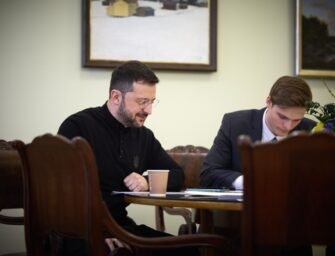
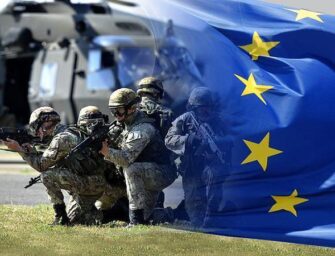



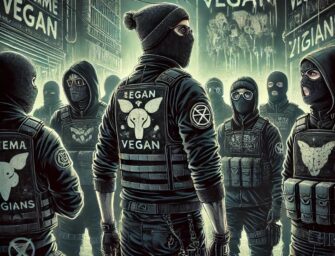







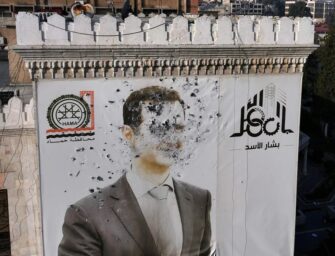








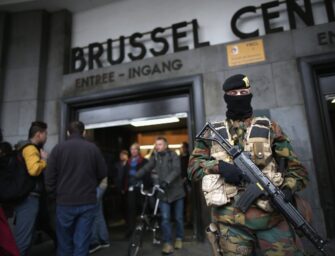


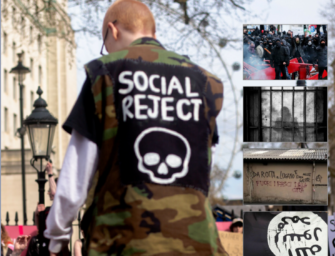

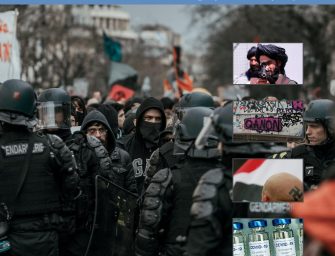







There are no comments
Add yours